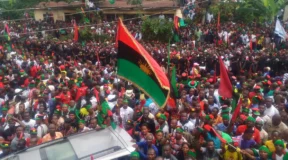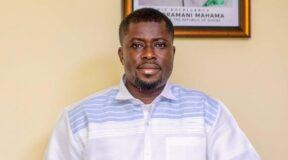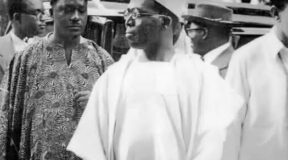South-South leaders have again, pushed for restructuring that will engineer growth
OpenLife Nigeria reports that stakeholders in the polity are gearing up for reengineering that will elevate Nigeria in to an industrialized country
Leaders of the South-South on Tuesday, insisted on restructuring of the country and true federalism, including devolution of powers to the federating units.
The leaders made the demand at a consultative meeting with a federal government delegation with governors, ministers and other stakeholders from the region at Government House, Port Harcourt.
Chairman of the South-South Governors’ Forum and Governor of Delta, Senator Ifeanyi Okowa, who presented the region’s demand, said that the nation was not at peace because the country had failed to practice true federalism.
Okowa said that it was time to restore the country back to a true federation with all the attributes and nuances of a federal state.
“For us in the South-South, the #ENDSARS protest is a metaphor of almost all that is wrong with us, our refusal to properly understand issues, and imbibe and entrench the virtues of justice, fairness and equity.
“The previous system of true federalism was jettisoned and it created a powerful center controlling and distributing all the resources unevenly.
“There was now a strong desire to restructure the country in order to guarantee peace, security, stability and progress of the nation.
“The region demands true federalism and devolution of powers to the states, including creating and managing their own police and security architecture, true fiscal federalism guided by the principle of derivation, revenue sharing and control of resources by each state,” he said.
He decried the deliberate lack of understanding, empathy and uncompromising attitudes of some Nigerians, who refused to understand the peculiar challenges of the South-South region, especially the degradation of the environment and the pollution of our waters.
“All we demand and ask for is fairness and equity and as we await actions to restructure the country, we hereby renew our demands for: ‘The relocation of the headquarters of major oil companies in Nigeria to the region; relocation of several NNPC subsidiaries from Lagos and Abuja to the region.
“The region further requested the completion without delay of the East-West Road and all federal roads in the region; Construction of the Lagos-Calabar railway, reconstruction and rehabilitation of the region’s major seaports notably the Port Harcourt, Calabar and Warri”.
The leaders also demanded the privatisation of the Port Harcourt and Warri refineries after several failed turn-around maintenance attempts.
The region called for the release of all funds owed Niger Delta Development Commission (NDDC) and for the amendment of the NDDC Act to place the commission on a first-line charge.
The stakeholders decried annual flooding challenge in the region and called for the establishment of buffer dams to control flood waters in the region.
They also called for the completion of the abandoned Gas Revolution Industrial Park at Ogidigben and the stepping down of electricity at the Okpai and Utorogu gas plants.
Leader of the Presidential delegation and Chief of Staff to the President, Professor Ibrahim Gambari, thanked the people of the South-South for their co-operation, and assured that all issues raised at the meeting would be communicated to the President.
Gambari apologised for the failure of the meeting to hold on Nov. 17 earlier slated, and said “we are here on behalf of the President as part of the ongoing and continuing conversation on how to make our nation better and I must thank the Governor of Delta, Senator Ifeanyi Okowa, for his tireless effort in ensuring that this meeting held.
“Our youths took to the streets to express their bitterness on ill-treatment meted out to them by the police and the President, recognising the importance of the demands made by the protesters agreed to implement the five demands.
“All over the world, people have right to protest but in doing so, the respect for law and order must be adhered to and they must also respect the rights of others.
“The President commends governors, traditional rulers and other stakeholders for their role in handling the protesters,” he said
Deputy President of the Senate, Senator Ovie Omo-Agege, on his part, commended the youths of South-South for their peaceful disposition during the protests.
He assured that all constitutional issues canvassed would be addressed by the Constitution Review Committee and urged the governors to prevail on their Houses of Assemblies to give the necessary concurrence at the appropriate time.
Inspector-General of Police, Mohammed Adamu, in his remark, said aside the massive economic effects of the protests, 243 public facilities were burnt, 71 warehouses looted, 610 vehicles destroyed, 134 police stations burnt,164 police vehicles destroyed and 136 firearms carted away.
He added that 65 civilians were killed during the protests and 37 policemen gruesomely murdered while 196 persons were seriously injured.
On his part, Director-General, Department of State Services (DSS), Mr Yusuf Magaji-Bichi, said the unity of the country, in spite of the diversity, remained the strength of the nation, adding that all hands must be on deck to ensure that peace returned to the country.
Rivers State Governor, Nyesom Wike, in a vote of thanks, commended the Federal Government delegation and stakeholders of the region for attending the meeting and urged the federal authorities to ensure implementation of the region’s demands.
Meanwhile, back in Delta State, governor Ifeanyi Okowa has tasked the Tertiary Education Trust Fund, TETFUND, on national research and development.
The State Government he leads, according to information, is committed to partnering with to meet the objectives for which it was set up.
The Secretary to the Delta State Government (SSG), Mr Chiedu Ebie, made this known when he received in his office members of the TETFUND Research and Development Standing Committee (RSDSC) on the proposed National Research and Development Foundation.
The SSG who was represented by the Permanent Secretary in the Office of the SSG, Sir Austin Oghoro, said that the state government had taken proactive measures in repositioning the education sub-sector through policies that would drive the growth and development of the sector in the state.
He said that the state currently had various higher institutions offering variety of programmes for the development of various levels of manpower in science and engineering.
Mr Ebie noted that to make science and engineering graduates useful in the competitive world, efforts must be made to link research development with market requirements.
He charged the TETFUND RDSC to ensure that the necessary data that would be generated from their findings on the educational infrastructure needs of the state, be noted and channelled to the appropriate authorities.
Earlier, the Team Leader, Sir Henry Eteama, said that they were in the state to generate necessary data for input for strategic planning for the establishment of the proposed National Research and Development Foundation (NRDF).
He solicited the support of the state government in carrying out the task, saying that data generated from the visit would go a long way in restructuring the educational sector in the country.







